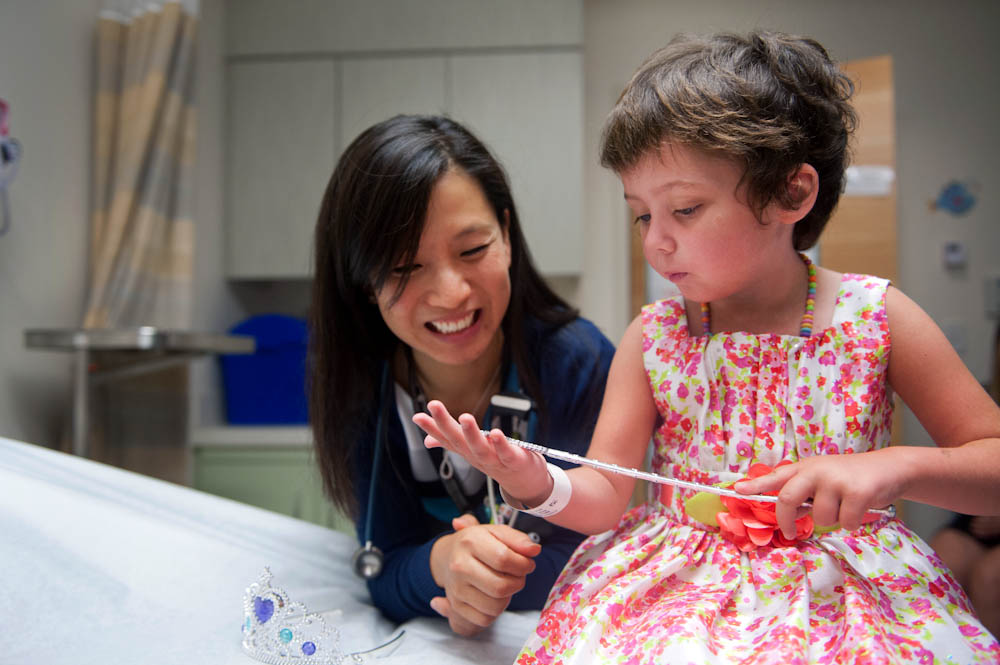Physicians tend to move quickly when a child is diagnosed with cancer. That’s because some of the most common types of childhood cancers (such as acute lymphoblastic leukemia (ALL), neuroblastoma, and brain tumors) can appear in a matter of days or weeks and progress rapidly. In such cases, prompt medical attention and aggressive therapy are an important part of the treatment plan. So, too, are the specialists a child will see from a first visit onward.
 At Dana-Farber/Boston Children’s Cancer and Blood Disorders Center, a child diagnosed with cancer will usually start by getting a series of medical tests, which can include imaging scans, biopsies (small samples of tissue or blood), and blood tests. Next, a team of pediatric specialists will make a final diagnosis and design a treatment plan. These specialists include:
At Dana-Farber/Boston Children’s Cancer and Blood Disorders Center, a child diagnosed with cancer will usually start by getting a series of medical tests, which can include imaging scans, biopsies (small samples of tissue or blood), and blood tests. Next, a team of pediatric specialists will make a final diagnosis and design a treatment plan. These specialists include:
- Primary pediatric oncologist: A senior staff physician who specializes in treating young patients with cancer. The primary pediatric oncologist will coordinate treatment options such as immunotherapy, chemotherapy or stem cell transplant, depending on the diagnosis.
- Pediatric surgeon: A doctor who specializes in pediatric surgery, creating the operative plan, performing surgery, and managing care after any needed operation.
- Radiation oncologist: A physician who plans and oversees pediatric radiation treatments.
- Pediatric oncology nurse: A registered nurse who specializes in treating young cancer patients, and teaches patients and families about procedures, medical terms, and medications.
- Pediatric oncology fellow or nurse practitioner: A person with advanced training in pediatrics and cancer, who may oversee care, prescribe medications, or perform certain procedures.
- Pediatric specialists from areas other than oncology, such as endocrinology, neurology, and cardiology, who provide care as needed.
Read more:
Once a treatment plan has started, pediatric patients and families may also need care from different support services, including:
- Social workers and psychologists who provide patients and family members a diverse range of psychosocial services, including emotional support and counseling.
- Child life specialists who use play as a way to help patients express fears or concerns, and understand the hospital environment. These specialists also provide activities and entertainment, and arrange tutors for children who miss school.
- Registered dietitians or nutritionists who help families choose healthy foods aimed at improving patient comfort, recovery, and health.
Throughout treatment, all of these specialists will work together, meeting regularly as a team to ensure that all of the patient’s needs are being addressed. And, after treatment, they will continue to work together to ease each child’s return to normal life, starting with the transition to survivorship programs, which help families move from active treatment to off-therapy care.
